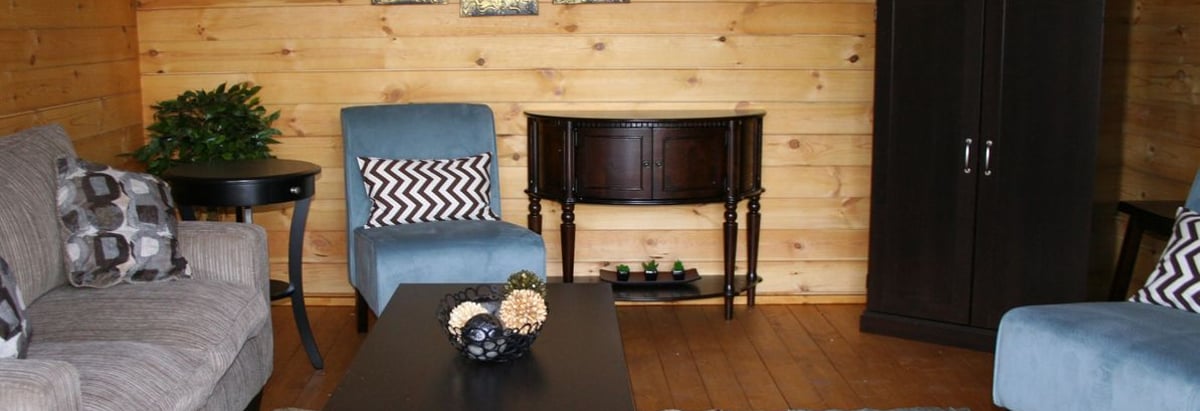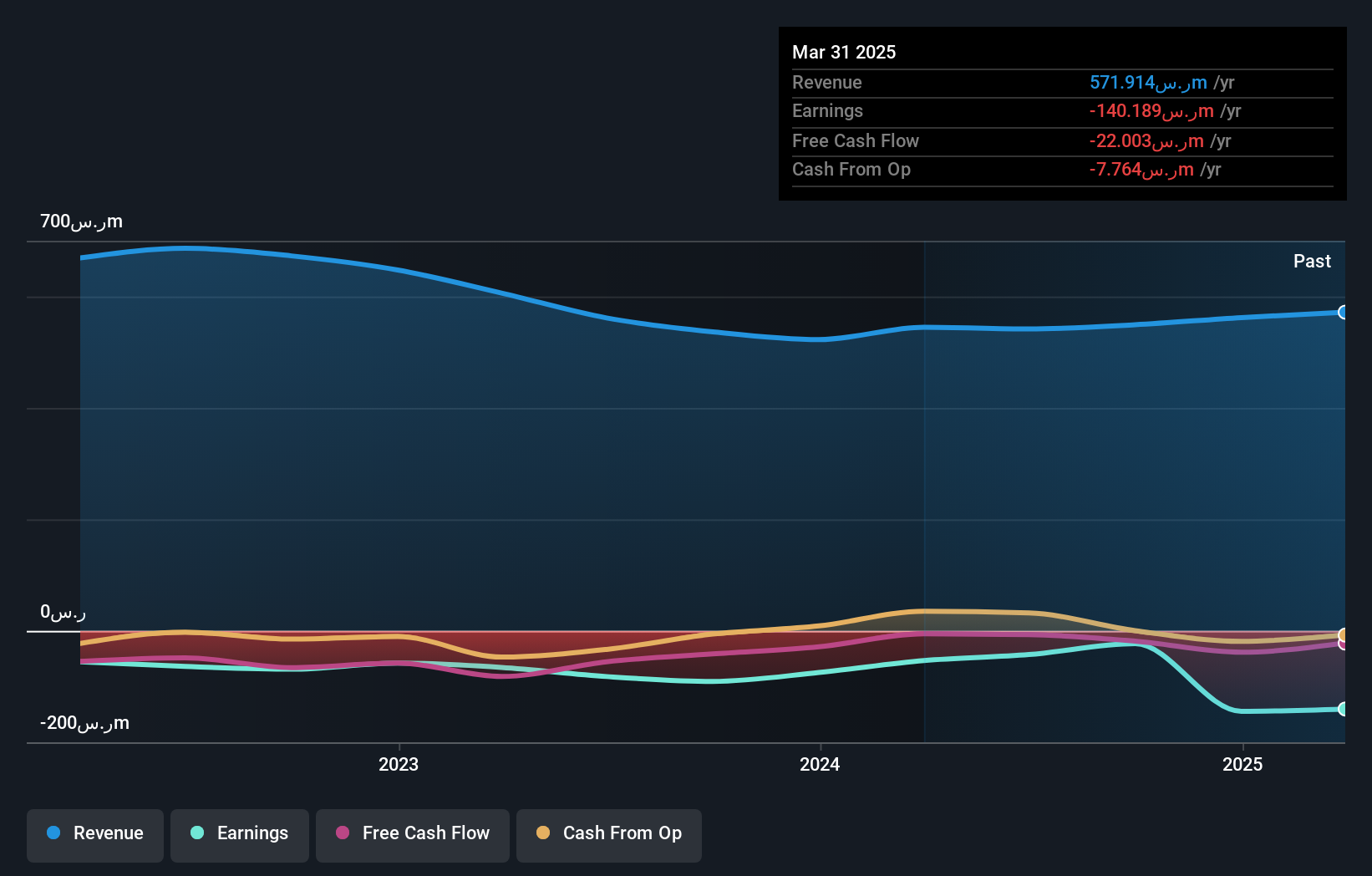- Saudi Arabia
- /
- Consumer Durables
- /
- SASE:2340
Recent uptick might appease Al Abdullatif Industrial Investment Company (TADAWUL:2340) institutional owners after losing 22% over the past year

Key Insights
- Institutions' substantial holdings in Al Abdullatif Industrial Investment implies that they have significant influence over the company's share price
- Al-Abdullatif Group Holding Company owns 60% of the company
- Using data from company's past performance alongside ownership research, one can better assess the future performance of a company
To get a sense of who is truly in control of Al Abdullatif Industrial Investment Company (TADAWUL:2340), it is important to understand the ownership structure of the business. We can see that institutions own the lion's share in the company with 60% ownership. In other words, the group stands to gain the most (or lose the most) from their investment into the company.
Institutional investors would probably welcome last week's 13% increase in the share price after a year of 22% losses as a sign that returns may to begin trending higher.
Let's delve deeper into each type of owner of Al Abdullatif Industrial Investment, beginning with the chart below.
See our latest analysis for Al Abdullatif Industrial Investment

What Does The Institutional Ownership Tell Us About Al Abdullatif Industrial Investment?
Many institutions measure their performance against an index that approximates the local market. So they usually pay more attention to companies that are included in major indices.
Al Abdullatif Industrial Investment already has institutions on the share registry. Indeed, they own a respectable stake in the company. This implies the analysts working for those institutions have looked at the stock and they like it. But just like anyone else, they could be wrong. It is not uncommon to see a big share price drop if two large institutional investors try to sell out of a stock at the same time. So it is worth checking the past earnings trajectory of Al Abdullatif Industrial Investment, (below). Of course, keep in mind that there are other factors to consider, too.

Investors should note that institutions actually own more than half the company, so they can collectively wield significant power. Al Abdullatif Industrial Investment is not owned by hedge funds. Al-Abdullatif Group Holding Company is currently the largest shareholder, with 60% of shares outstanding. With such a huge stake in the ownership, we infer that they have significant control of the future of the company. For context, the second largest shareholder holds about 5.7% of the shares outstanding, followed by an ownership of 2.5% by the third-largest shareholder. Suleiman Omar Al Abdullatif, who is the third-largest shareholder, also happens to hold the title of Chairman of the Board.
While studying institutional ownership for a company can add value to your research, it is also a good practice to research analyst recommendations to get a deeper understand of a stock's expected performance. As far as we can tell there isn't analyst coverage of the company, so it is probably flying under the radar.
Insider Ownership Of Al Abdullatif Industrial Investment
While the precise definition of an insider can be subjective, almost everyone considers board members to be insiders. Management ultimately answers to the board. However, it is not uncommon for managers to be executive board members, especially if they are a founder or the CEO.
Most consider insider ownership a positive because it can indicate the board is well aligned with other shareholders. However, on some occasions too much power is concentrated within this group.
We can see that insiders own shares in Al Abdullatif Industrial Investment Company. As individuals, the insiders collectively own ر.س88m worth of the ر.س1.1b company. This shows at least some alignment. You can click here to see if those insiders have been buying or selling.
General Public Ownership
The general public, who are usually individual investors, hold a 32% stake in Al Abdullatif Industrial Investment. While this size of ownership may not be enough to sway a policy decision in their favour, they can still make a collective impact on company policies.
Next Steps:
It's always worth thinking about the different groups who own shares in a company. But to understand Al Abdullatif Industrial Investment better, we need to consider many other factors. Consider risks, for instance. Every company has them, and we've spotted 1 warning sign for Al Abdullatif Industrial Investment you should know about.
If you would prefer check out another company -- one with potentially superior financials -- then do not miss this free list of interesting companies, backed by strong financial data.
NB: Figures in this article are calculated using data from the last twelve months, which refer to the 12-month period ending on the last date of the month the financial statement is dated. This may not be consistent with full year annual report figures.
New: Manage All Your Stock Portfolios in One Place
We've created the ultimate portfolio companion for stock investors, and it's free.
• Connect an unlimited number of Portfolios and see your total in one currency
• Be alerted to new Warning Signs or Risks via email or mobile
• Track the Fair Value of your stocks
Have feedback on this article? Concerned about the content? Get in touch with us directly. Alternatively, email editorial-team (at) simplywallst.com.
This article by Simply Wall St is general in nature. We provide commentary based on historical data and analyst forecasts only using an unbiased methodology and our articles are not intended to be financial advice. It does not constitute a recommendation to buy or sell any stock, and does not take account of your objectives, or your financial situation. We aim to bring you long-term focused analysis driven by fundamental data. Note that our analysis may not factor in the latest price-sensitive company announcements or qualitative material. Simply Wall St has no position in any stocks mentioned.
About SASE:2340
Al Abdullatif Industrial Investment
Manufactures and sells rugs and carpets in the Kingdom of Saudi Arabia, Asia, North America, Africa, Europe, and Australia.
Mediocre balance sheet and overvalued.
Market Insights
Community Narratives



